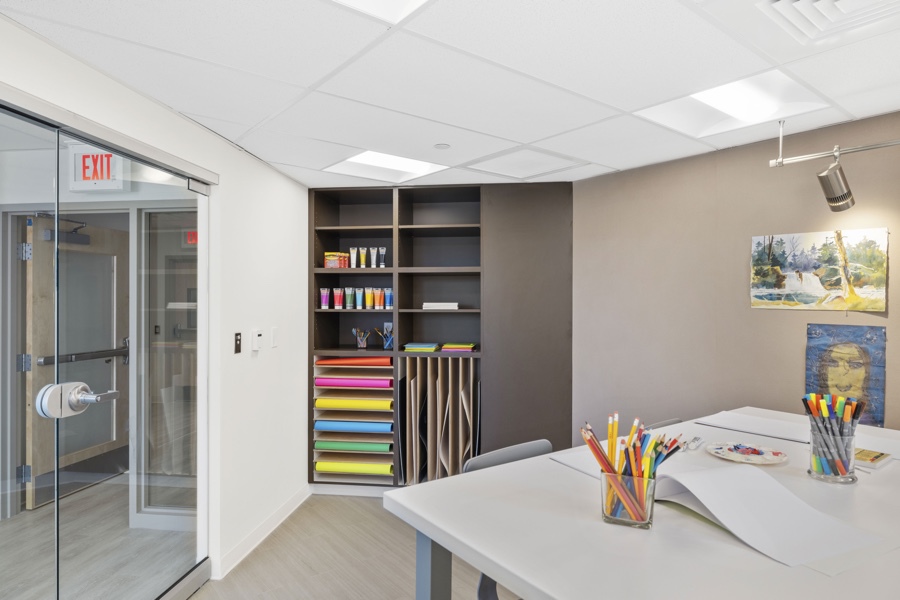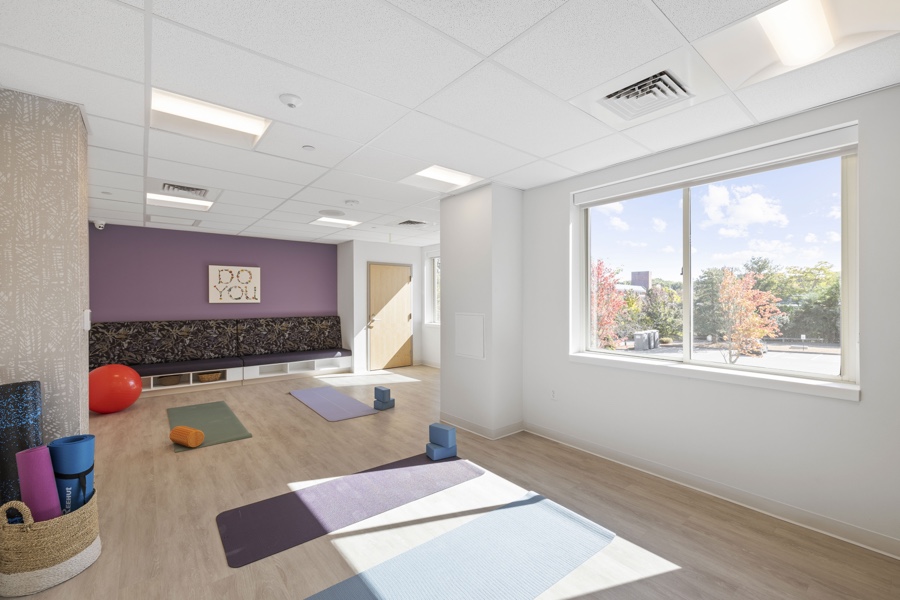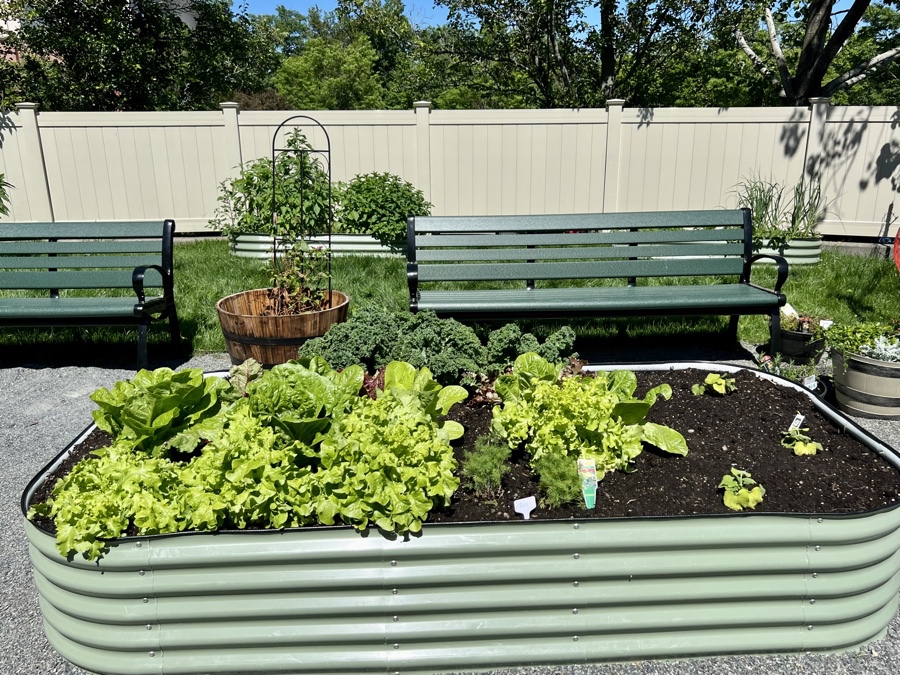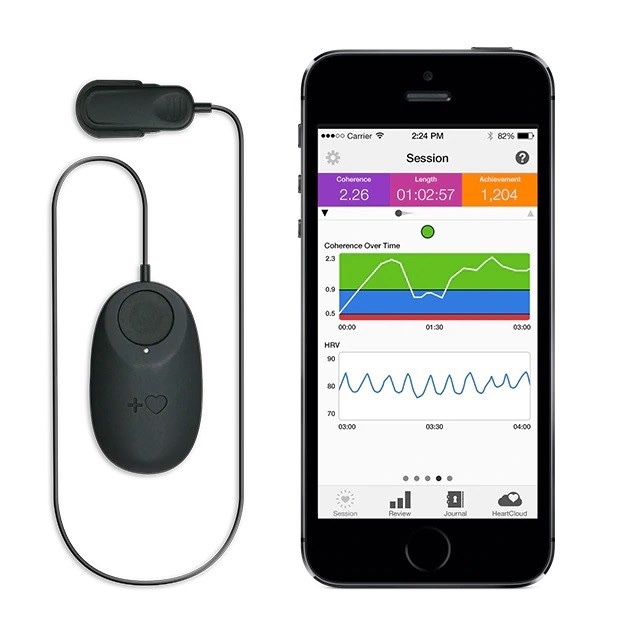We have updated our Privacy Policy. By using this website, you consent to our Terms and Conditions.
Integrative Therapies at Walden’s Center for Recovery
Patient Centered on One’s Mind, Body & Spirit
At Walden’s Center for Recovery, our integrative therapies are a multidisciplinary, patient-centered approach that addresses the mind, body, and spirit.
We offer adults and adolescents a holistic and creative therapeutic group program including expressive art therapy, dance movement therapy, heart rate variability biofeedback, yoga, music therapy, meditation and mindfulness, garden therapy and more.
Learn more about our integrative therapies; Expressive Art Therapy, Yoga, Garden Therapy, Heart Rate Variability Biofeedback, Dance Movement Therapy, Music & Meditation, Journal Club, Mindfulness & Self-Compassion, Relapse Prevention, and Sleep Project
Expressive Art therapy

In our art therapy groups, clients are guided by skilled eating disorder-focused expressive arts therapists in our beautiful art studio. Art therapy encourages clients to leave judgment and expectation behind, and gives them the tools to articulate their experiences while gaining insight into their emotions and behavior.
Yoga

Trauma-informed movement meditation is tailored specifically for those recovering from eating disorders. Like art therapies, yoga and movement provide a pathway for emotional expression in a way unlike other talk-based therapies. Guided movement also offers a supervised reintroduction to movement for patients to redefine their relationship with physical exercise.
Garden Therapy

A warm and inviting space for staff and clients alike, the garden is a centerpiece to the healing energy at Walden’s Center for Recovery. Horticultural therapy, or garden therapy, is an immersive treatment that engages our clients in gardening activities to achieve specific treatment goals. Our garden offers green space, fresh air, and sunshine. We grow a vibrant sensory garden, local medicinal plants, fresh herbs, and different kinds of vegetables and fruit that we use alongside our clients in our coaching kitchen.
Heart Rate Variability Biofeedback

We have created a unique program utilizing heart rate variability biofeedback as a tool for empowering our clients for emotional self-regulation. Biofeedback allows them to observe a real-time visual representation of their physiological stress or nervous system activation. Often, patients become fascinated and invested when they observe their ability to change their physiology with simple breathing and directed meditative and thought practices. Learn more about how we use biofeedback in eating disorder treatment.
Dance movement therapy creates a safe and accessible environment to explore the integration of the mind and the body. It utilizes gentle movement, stretches, expressive movement, and the use of music, rhythm, and beat to foster a more compassionate relationship to the body and the self.
Music & Meditation
Facilitated by an expressive art therapist with a focus in music therapy, these creative groups harness the transformative power of music and rhythm. Activities include collaborative songwriting, poetic expression, drum circles, live music-making, music improvisation, sound baths, and meditative listening.
Journal Club
At Walden, we believe that the healing journey includes the whole person. Recovery is supported not just by improving nutrition, but also by gaining knowledge and understanding of the ‘why’ behind treatment. Journal Club allows clients to read and discuss scientific literature and information pertaining to eating disorders and treatment best practices. We aim to empower patients with the appropriate wisdom of physical, emotional, mental, and relational changes with eating disorders.
Mindfulness & Self-Compassion
Mindfulness groups are guided by evidence-based mindfulness interventions for mental health and eating disorders, and guide clients through various practices of getting familiar with the environment, (sound, sights, smells), the breath, emotions, and physical sensations. Mindfulness groups slow things down and invite clients to learn tolerance, non-judgmental awareness, and finally, curiosity. When applied to our own emotions and physical sensations, mindfulness invokes the practice of self-compassion.
Relapse Prevention
With relapse prevention groups, clients work to identify contributors and warning signs and develop support plans in advance of discharge. Clients appreciate this group as a chance to “stack the deck in favor of recovery.”
Sleep Project

Integrative therapies also emphasize restorative sleep as a core therapeutic goal of treatment. At Walden, we underscore the necessity of good quality sleep for mood, behavior change, emotional regulation, stress management, and recovery maintenance.
Tools used in sleep optimization include program-wide sleep hygiene protocols, vitamins, minerals and other non-pharmacological supports, cognitive behavioral therapy for insomnia, and schedules based on circadian rhythm regulation.
For more information on the Center for Recovery, please click here. ( Eating Disorder Treatment in Dedham, MA | Walden Eating Disorders).
If you are concerned that you, or a loved one, may have an eating disorder, please reach out by completing the form on this page or email us at intake_coordinators@waldenbehavioralcare.com.
What's New
Reach out now. Recovery is possible
Reach out to usOr Call 888-228-1253 to speak confidentially with one of our eating disorders specialists to start the road to recovery.

